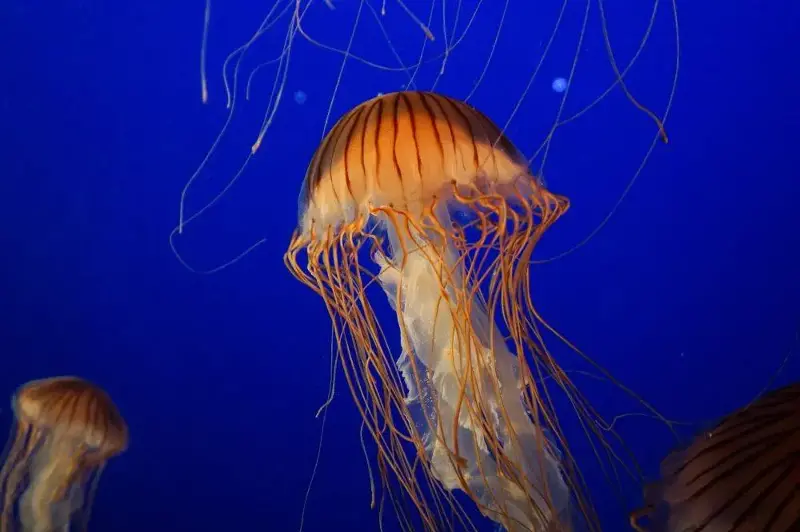
Box jellyfish had recently been spotted around Langkawi, adding colour to the island’s marine life, but also raising the risk of painful and dangerous stings.
Here’s a quick guide on what to do if you or someone else gets stung.
Get help fast
Seek assistance immediately from lifeguards or anyone trained in first aid.
They can help manage the injury and check the person’s condition.
If no help is available, move away from the jellyfish to avoid more stings.
Rinse the area properly
Use seawater or vinegar to rinse the sting.
Do not use fresh water as it can cause the toxins to spread faster.
Lifeguard stations along the beaches in Malaysia usually keep vinegar ready for this purpose.
Remove tentacles carefully
If you do not have vinegar on hand, carefully scrape off any mucus or tentacles using a tweezer or a similar tool.
Apply vinegar aferwards to neutralise the stinging area.
Manage the pain
After clearing the area, soak the sting in warm water for at least 30 minutes, or cover it with hot towels or flannels.
Over-the-counter painkillers like paracetamol or ibuprofen can help ease discomfort.
What you should not do
Some common "quick fixes" can actually make things worse:
Do not pee on the sting as it does not neutralise venom.
Avoid ice or cold packs, as they can increase pain.
Never touch tentacles with bare hands as they can still release venom.
Signs that you need urgent medical attention
Even if a sting seems minor, medical assessment may be necessary.
According to the United Kingdom's National Health Service, anyone stung who develops the symptoms below must be taken to a doctor immediately.
Symptoms:
- Difficulty breathing
- Chest pain
- Fits or seizures
- Severe swelling near the sting
- Severe bleeding
- Vomiting
- Lightheadedness or loss of consciousness
